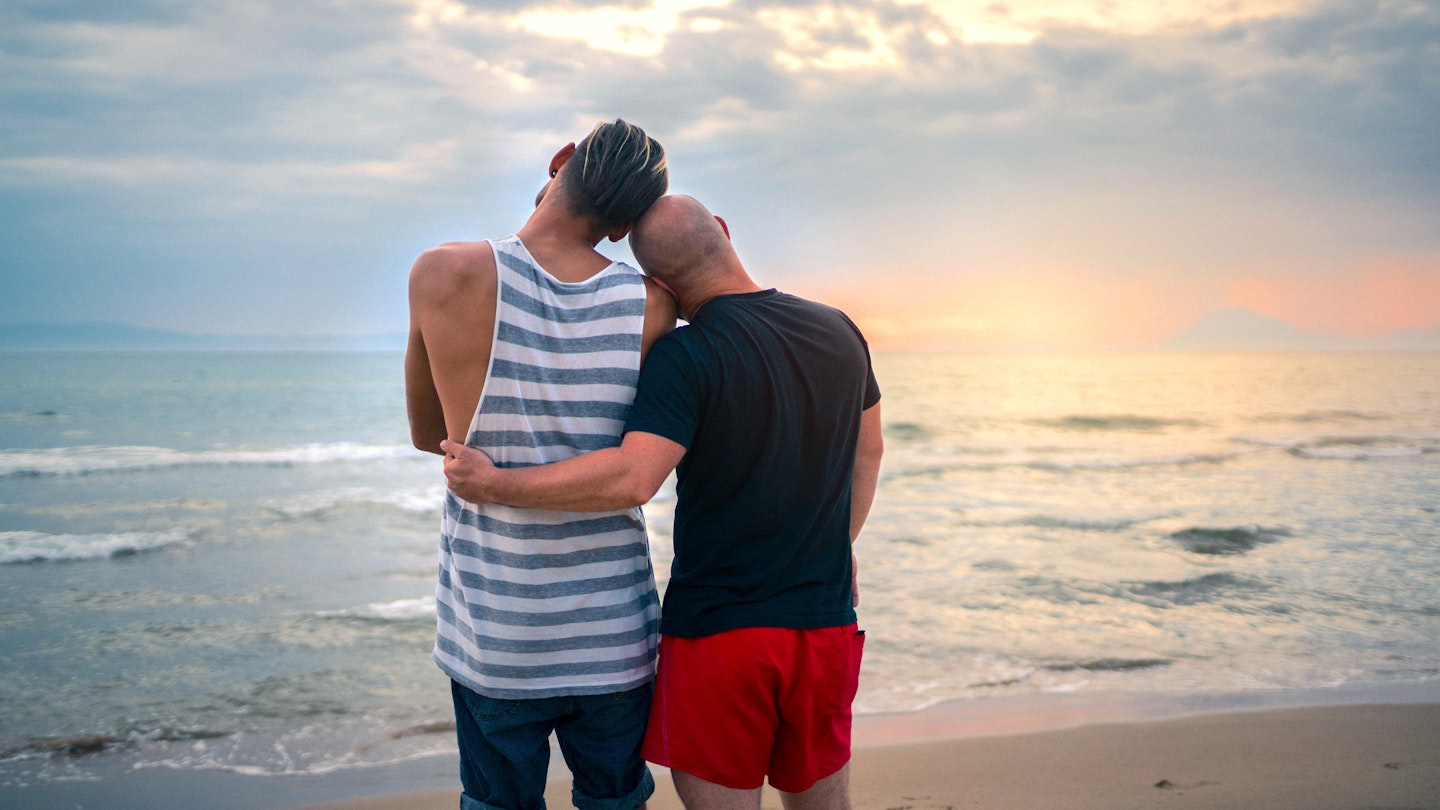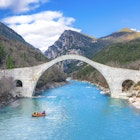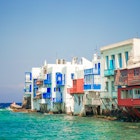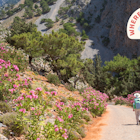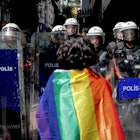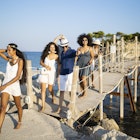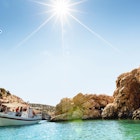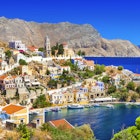Most people visit Mykonos at the peak of summer, and in July and August every taverna and club is open and filled with raucous, partying crowds. But many visitors prefer the months before and after high season, when most everything is open but less overheated – whether it’s the weather or the dance floors.
Outside of the touristy months from May to October, the island slumbers. You can actually hear the calls of the birds, and the clubs' reverberating bass thumps are replaced by the occasional staccato beat of hammers, as preparations are made for another tourist season. Use this month-by-month guide to pick your perfect time to visit.
Low Season: November to April
Best time for quiet
In comparison to August, Mykonos in winter is unrecognizable. Ferries to other islands are limited, and most everybody is hunkered down as often-fierce storms blow off the Aegean. The water is nowhere near as welcoming a temperature, and the surf can be treacherous. But if you crave solitude (and cheap prices), the low season can reward.
Shoulder Season: May and June, September and October
Best time to savor Mykonos
Spring wildflowers carpeting the hillsides are reason enough to visit Mykonos in May. The lack of crowds is also a great reason to visit before and after summer, especially as the island is fully open, albeit with few all-night beach parties. That prices are much lower is an added bonus.
High Season: July and August
Best time for partying
Crowds pour forth from packed planes and ferries, with most heading straight to the beach clubs for an immediate cocktail and a dip. Events range from the summer-long Cultural Festival, which features free concerts, galleries shows and more, to the utterly hedonistic Xlsior gay festival.
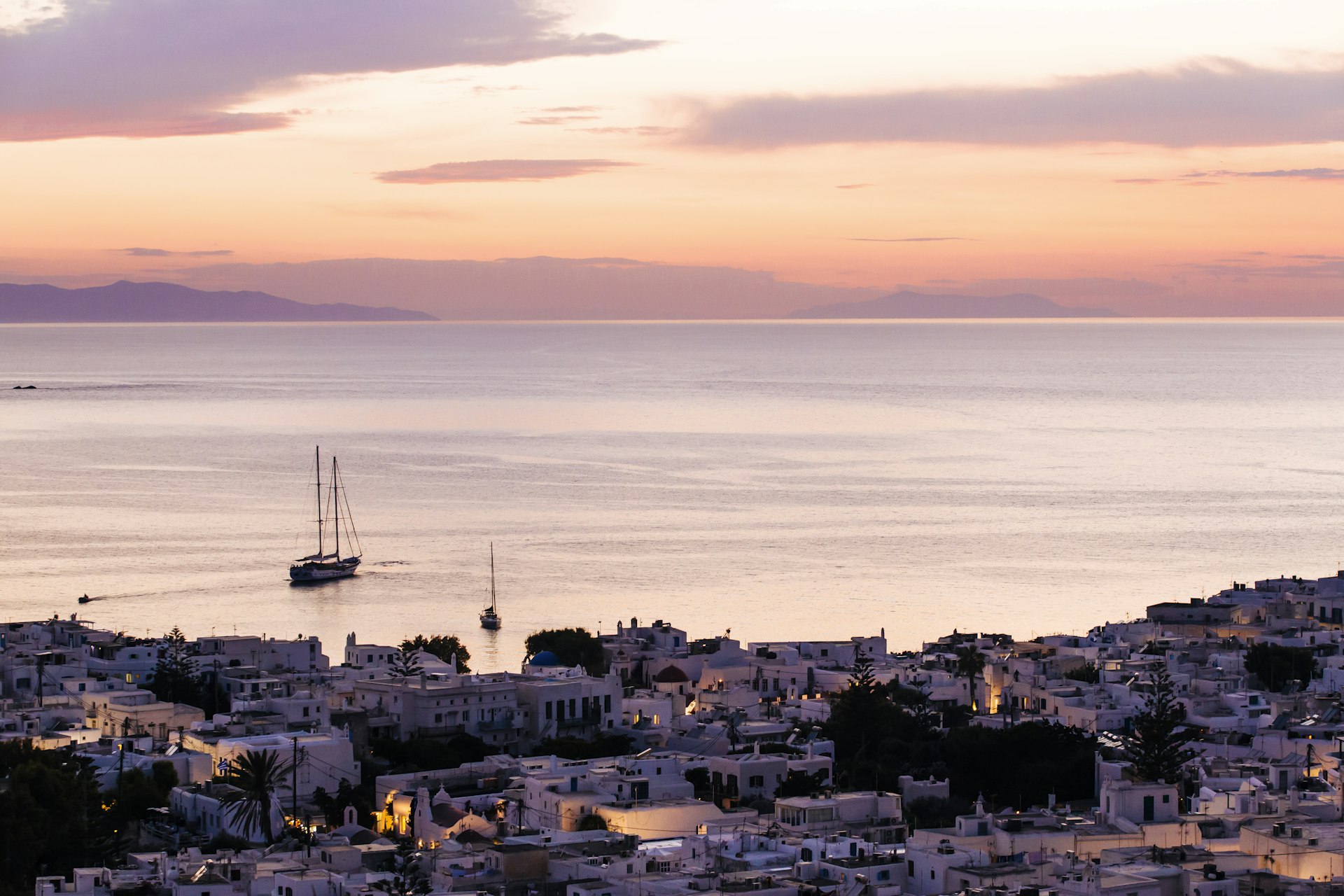
January
Post-Christmas Mykonos is quiet, with just enough accommodations and tavernas open to sustain the stray visitor. The few bars open celebrate New Year’s, a raucous local affair. Holy services and feasts mark the Epiphany (Balosia) in Hora, a public holiday.
Key Events: Epiphany (January 6).
February
Lent dominates the religious calendar. Carnival (Apokries) is celebrated in a far more relaxed manner than in other European spots, such as Venice.
Key Events: Lent.
March
This month, the first signs of spring bring people outdoors. Patriotic and religious ceremonies are held across Mykonos and the rest of Greece on March 25, the day of Greek independence (also the Feast of the Annunciation). Look for traditional feasts featuring fried fish.
Key Events: Independence Day, Feast of the Annunciation.
April
Easter is the most important religious date on the Greek calendar. Over the Orthodox Easter week, members of the Mykonos diaspora return to the island from Athens and beyond for celebrations, services and countless family meals. Outdoor events are all public, and visitors are welcome. You may even snare an invite to a family feast, an opportunity you shouldn’t refuse! Watch for religious processions in the main town of Hora and the village of Ano Mera. (Note that Orthodox Easter is usually a couple of weeks later than the Catholic church's Easter, as the two faiths use different lunar calendars.)
Key Events: Greek Orthodox Easter.

May
Much of Mykonos begins reopening during the week after Easter. The countryside is alive with wildflowers, which makes for splendid walks and views. This is especially true on May Day, a national holiday.
Key Events: May Day.
June
Many longtime visitors to Mykonos favor June, when summer kicks into high gear and beach parties with DJs can be found nightly. Watch for the annual Cultural Festival, which begins in June and encompasses dozens of events large and small all summer, many featuring top performers and artists.
Key Events: Cultural Festival.
July
Full-on summer means a full-on calendar. The bars and beaches are packed, but with a slightly less manic edge than in August. Churches island-wide are polished up for the Feast of St. Panteleimon.
Key Events: Feast of St. Panteleimon.

August
It gets very hot for most of August, so be prepared to spend plenty of time under umbrellas at beachside tavernas, taking full advantage of pleasantly balmy nights when every outdoor venue is one big party. Ferries burst at the seams around Assumption Day when families gather; Mykonos celebrations center on the Tourliani Monastery in Ano Mera. The premier party event of August is Xlsior Mykonos, an annual week-long gay festival that draws 30,000 revelers and is one of the largest in Europe.
Key Events: Feast of the Assumption (August 15), Xlsior Mykonos.
From Sappho to Pride: a guide to LGBT-friendly Greece
September
Like June, September is an excellent month to visit Mykonos. The sea has been warming all summer long, and you’ll enjoy gorgeous swimming at all the beaches. For the Harvest Festival, celebrated early in the month at the Agricultural Museum in Hora, families bring traditional foods and feast throughout the day.
Key Events: Harvest Festival.
October
You can still fully enjoy Mykonos in October. Although the famous DJs have moved on, the bars and big beach clubs in Hora are still partying until the early hours. The water remains swimmable, and you can get a seat in top tavernas without booking.
November
Beach umbrellas are stored away and locals retreat into their white-washed burrows as the island slips into off-season quiet. Small feast days bring families out to village churches.
December
Preparations for Christmas enliven Hora. This is a family holiday, and decorations are muted compared to destinations depending on holiday tourism. Note that gifts are not traditionally exchanged on December 25th, but rather at the New Year. Expect crisp sunny days punctuated by squalls.
Key Events: Christmas.
You might also like:
First time Mykonos: top tips for your first visit to Greece's party island
Free things to do in Mykonos: don't make a mezze of your budget
Make the most of Mykonos: our top things to do in paradise
